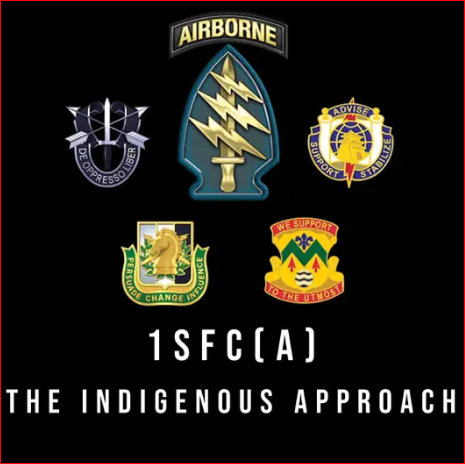Freedom of Information Act Frequently Asked Questions
What is FOIA?
The FOIA is a Federal law that establishes the public's right to request existing records from Federal government agencies. The FOIA is known by its legal cite as 5 U.S.C. § 552. The FOIA provides that any person has a right, enforceable in court, to obtain access to federal agency records, except to the extent that such records (or portions of them) are protected from public disclosure by one of nine exemptions or by one of three special law enforcement record exclusions. The FOIA thus established a statutory right of public access to Executive Branch information in the Federal Government.
Who can file a FOIA requests?
Generally any person can make a FOIA request. Examples include but are not limited to, individuals, corporations, associations, state and local governments, and foreign governments. The two exceptions are fugitives seeking records related to their status as fugitives and foreign governments seeking records from the intelligence community.
Who is subject to the FOIA and what type of information can be requested?
The FOIA’s scope includes Federal Executive Branch Departments, agencies, and offices, Federal regulatory agencies, and Federal corporations. Congress, the Federal Courts, and parts of the Executive Office of the President are not subject to the FOIA. State and local governments are likewise not subject to the Federal FOIA, but some states have their own equivalent access laws for state records.
Top of the Page
What is a record?
A record is the product(s) of data compilation, such as all books, papers, maps, and photographs, machine readable materials, inclusive of those in electronic form or format, or other documentary materials, regardless of physical form or characteristics, made or received by an agency of the United States Government under Federal law in connection with the transaction of public business and in Army possession and control at the time the FOIA request is made.
Top of the Page
Can we ask questions under the FOIA?
The FOIA does not require Federal Agencies to answer questions, render opinions, or provide subjective evaluations. Requesters must ask for existing records, such as those mentioned above.
Top of the Page
How do I file a FOIA request?
Label your request "Freedom of Information Act Request," preferably within the request letter and on the envelope, and address the request to the Military Command or Installation likely to have the information you seek. If you do not know the location of the information you are seeking, or which Initial Denial Authority (see Appendix A), is likely to maintain the information, you may call the U.S. Army Freedom of Information Act Office at (703) 428-6508, or write to the U.S. Army Freedom of Information Act Office, 9301 Chapek Road, Building 1458, Fort Belvoir, VA 22060-5605. E-mail is usarmy.belvoir.hqda-esa.mbx.rmda-foia@army.mil
State your willingness to pay applicable fees. If you seek a fee waiver, provide a justification for such a waiver.
Describe the specific records you are requesting in enough detail so that they can be located with a reasonable amount of effort. Generally, a record is reasonably described when the description contains sufficient file-related information (type of document, title, subject area, date of creation, originator, etc.); or the request contains enough event-related information (date and circumstances surrounding the event the record covers) to permit the conduct of an organized, non-random search.
Top of the Page
What are the reasons for not releasing a record?
There are seven reasons why the Army may not release a record requested under FOIA. They are:
- The request is transferred to another Army Component or Federal agency.
- The Army Component determines through knowledge of its files and reasonable search efforts that it neither controls nor otherwise possesses the requested record.
- A record has not been described with sufficient detail to enable the Army Component to locate it by conducting a reasonable search.
- The requester has failed unreasonably to comply with procedural requirements, including payment of fees, imposed by the FOIA and AR 25-55.
- The request is withdrawn by the requester.
- The information requested is not a record within the meaning of the FOIA and the AR 25-55.
- The record is denied in whole or part in accordance with procedures set forth in the FOIA and AR 25-55. (See FOIA exemptions, below)
Top of the Page
What are FOIA exemptions?
Records (or portions of records) will be disclosed unless that disclosure harms an interest protected by a FOIA exemption. The nine FOIA exemptions are cited in the Act as 5 U.S.C. §552 (b)(1) through (b)(9):
The nine exemptions are described below.
- Exemption 1: Information that is classified to protect national security.
- Exemption 2: Information related solely to the internal personnel rules and practices of an agency.
- Exemption 3: Information that is prohibited from disclosure by another federal law.
- Exemption 4: Trade secrets or commercial or financial information that is confidential or privileged.
- Exemption 5: Privileged communications within or between agencies, including those protected by the:
1. Deliberative Process Privilege (provided the records were created less than 25 years before the date on which they were requested)
2. Attorney-Work Product Privilege
3. Attorney-Client Privilege
4. Presidential Communications Privilege - Exemption 6: Information that, if disclosed, would invade another individual’s personal privacy.
- Exemption 7: Information compiled for law enforcement purposes that:
◦7(A). Could reasonably be expected to interfere with enforcement proceedings
◦7(B). Would deprive a person of a right to a fair trial or an impartial adjudication
◦7(C). Could reasonably be expected to constitute an unwarranted invasion of personal privacy
◦7(D). Could reasonably be expected to disclose the identity of a confidential source
◦7(E). Would disclose techniques and procedures for law enforcement investigations or prosecutions, or would disclose guidelines for law enforcement investigations or prosecutions if such disclosure could reasonably be expected to risk circumvention of the law
◦7(F). Could reasonably be expected to endanger the life or physical safety of any individual - Exemption 8: Information that concerns the supervision of financial institutions.
- Exemption 9: Geological information on wells.
Top of the Page
What is a denial?
When information is withheld, whether partially or fully, this constitutes a denial under FOIA. A request may be denied for one or more of the nine FOIA exemptions.
Top of the Page
Can I appeal a denial?
Yes. If your request is initially denied in whole or in part under one or more of the above exemptions or denied for some other reason, you will be advised of your appeal rights and the proper procedures for submitting the appeal within 90 calendar days.
Top of the Page
How long will it take for my request to be processed?
In fairness to all requesters, the Army processes requests in order by date of receipt and according to their complexity. These are called easy and hard queuing tracks. Whenever possible, an initial determination to release or deny a record is made within 20 working days after receipt of the request by the official who is designated to respond.
If unusual circumstances exist that preclude a timely response, that office will give an estimated completion date and reason(s) for delay. Unusual circumstances are:
- Need to search for and collect the requested records from other facilities that are separate from the office determined responsibility for a release or denial decision on the requested information.
- The need to search for, collect and examine a voluminous amount of separate and distinct records, which are requested in a single request.
- The need for consultation, which shall be conducted with all practicable speed, with other agencies having a substantial interest in the determination of the request, or among two or more DOD Components having a substantial subject-matter interest in the request.
Top of the Page
How do I qualify for expedited processing of my request?
To receive expedited processing, the requester must demonstrate one of the following compelling needs:
- Failure to obtain the records on an expedited basis could reasonably be expected to pose an imminent threat to the life or physical safety of an individual.
- Information is urgently needed by an individual primarily engaged in disseminating information in order to inform the public concerning actual or alleged Federal Government activity.
- Other reasons that merit expedited processing are an imminent loss of substantial due process rights and humanitarian need.
Top of the Page
Do I have to pay for a FOIA request?
The FOIA allows fees to be charged to certain types of requesters; however, any previous fees for FOIA requests must be paid in full prior to processing current request.
Waivers or reductions in fees may be given if disclosing the information is in the public interest. Public interest is defined as information which significantly enhances the public’s knowledge of the operations and activities of the Army. The FOIA requires that requesters be placed into one of the below categories:
Commercial. Requesters who seek information for a use or purpose that furthers their commercial, trade, or profit interest are considered commercial requesters. Commercial requesters pay all fees for search, review, and duplication.
Educational. Institutions of education, including preschools, elementary or secondary schools and institutions of higher learning, qualify as educational institutions. The records must be sought in furtherance of scholarly research. Educational requesters pay only duplication fees, unless it is determined that fees are waived or reduced in the public interest. The first 100 pages are provided at no cost.
Non-Commercial Scientific. A non-commercial scientific institution is operated solely for conducting scientific research. The records must be sought in furtherance of scientific research. Like educational requesters, these requesters pay only duplication fees, unless it is determined that fees are waived or reduced in the public interest. The first 100 pages are provided at no cost.
News Media. A representative of the news media is a person actively gathering news for an entity organized and operated to publicize or broadcast news to the public. News media pay only duplication fees, unless it is determined that fees are waived or reduced in the public interest. Again, the first 100 pages are provided at no cost.
"Other" Requester. Requesters who do not qualify in another category are considered "other" requesters, and normally make requests for agency records for their personal use. "Other" requesters receive two hours search, all review costs, and the first 100 pages at no cost.
All requesters should submit a willingness to pay fees regardless of the fee category, however, this does not mean you will be charged fees. Except for commercial requesters whose fees total more than $15, waivers are always considered. Fee waivers may be granted when disclosure of the records is in the public interest because it is likely to contribute significantly to public understanding of the operations or activities of the government. The following factors are weighed in making a fee waiver determination.
The subject of the request.
The informative value of the information to be disclosed. The contribution to an understanding of the subject by the general public likely to result from the disclosure.
The significance of the contribution to public understanding. Disclosure of the information is not primarily in the commercial interest of the requester.
The ability of the requester to disseminate the information.
Top of the Page


